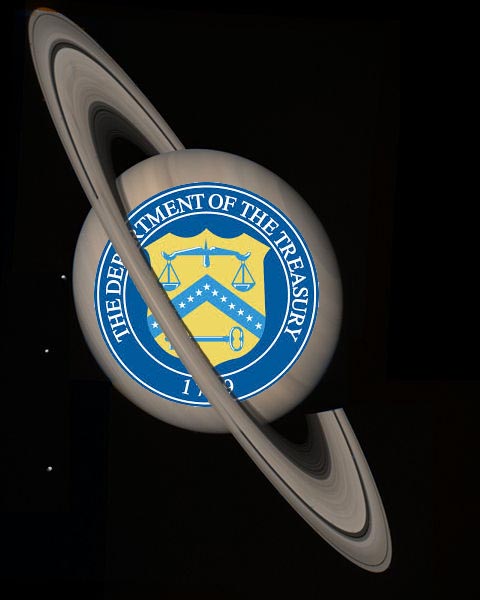 The latest technical amendments promulgated last Friday by the Office of Foreign Assets Control (“OFAC”) make me wonder where the people who write these rules come from. Mars, perhaps? No, further out. I’m guessing they come from Saturn because even someone from Mars might have a better idea about how things actually work here on planet Earth.
The latest technical amendments promulgated last Friday by the Office of Foreign Assets Control (“OFAC”) make me wonder where the people who write these rules come from. Mars, perhaps? No, further out. I’m guessing they come from Saturn because even someone from Mars might have a better idea about how things actually work here on planet Earth.
These technical amendments add to the Terrorism Sanctions Regulations and the Global Terrorism Sanctions Regulations a rule reflecting OFAC’s infamous guidance dealing with ownership interests by blocked parties. First, let’s quote the regulation in question and then, in case you don’t speak Saturnian, translate it into English as spoken here on Earth.
A person whose property and interests in property are blocked pursuant to § 594.201(a) has an interest in all property and interests in property of an entity in which it owns, directly or indirectly, a 50 percent or greater interest.
Translated from Saturnian into English this means, more or less:
Terrorists have an interest in things in which they have a 50 percent or greater interest.
Who says you can’t make a living printing tautologies in the Federal Register? People have an interest in things that they have an interest in. Who would have thought?
Next we have this:
The property and interests in property of such an entity, therefore, are blocked, and such an entity is a person whose property and interests in property are blocked pursuant to § 594.201(a), regardless of whether the entity itself is listed in the Annex to Executive Order 13224, as amended, or designated pursuant to § 594.201(a)
Again, for those of you who haven’t made it through the Rosetta Stone DVDs on Saturnian, this says in English:
You have to block the assets of companies who aren’t on the SDN list if they are owned 50 percent or more by someone who is on the list
Now this may make sense on Saturn, at least if you’re a business on Saturn and are deciding whether to sell a light phaser or flying saucer fuel to a three-legged, four-eyed alien who has just walked into your shop. But, here on Earth, not so much.
To begin with, how does anyone screen for blocked parties who aren’t on the list of blocked parties? Simple, you say, just ask every company you’re screening for the name of all its 50 percent or greater owners. Okay, so I do that and I find out that the majority owner isn’t on the list. Home free! Not so fast. Who owns the majority owner? Because if he is owned by a blocked party, then his property is blocked, meaning the company you are screening is blocked and its assets must also be blocked. Okay, so you ask for the names of owners greater than 50 percent and owners of owners with more than a 50 percent interest. But wait, even if the owner of the owner isn’t on the list, the owner of the owner of the owner might be and so forth.
And, of course, there’s another problem with this rule as some innocent investors in Illinois learned. These blocking rules apply not just to the interest of the blocked party but to the interest of the minority investors as well. And they apply even if the majority investor (or the majority investor in the majority investor) is designated after the investment. So, let’s say that Mr. A owns 51 percent of Company B which owns 51 percent of company C and that, several years after his investment, he’s designated by OFAC as an SDN. The 49 percent investors in both Company B and C now have their investments blocked. How can anyone protect themselves against that? What crystal ball are people supposed to use to predict whether a person they are doing business with won’t become an SDN in the future?
 Permalink
Permalink
Copyright © 2013 Clif Burns. All Rights Reserved.
(No republication, syndication or use permitted without my consent.)

 Posted by
Posted by  Category:
Category: 

